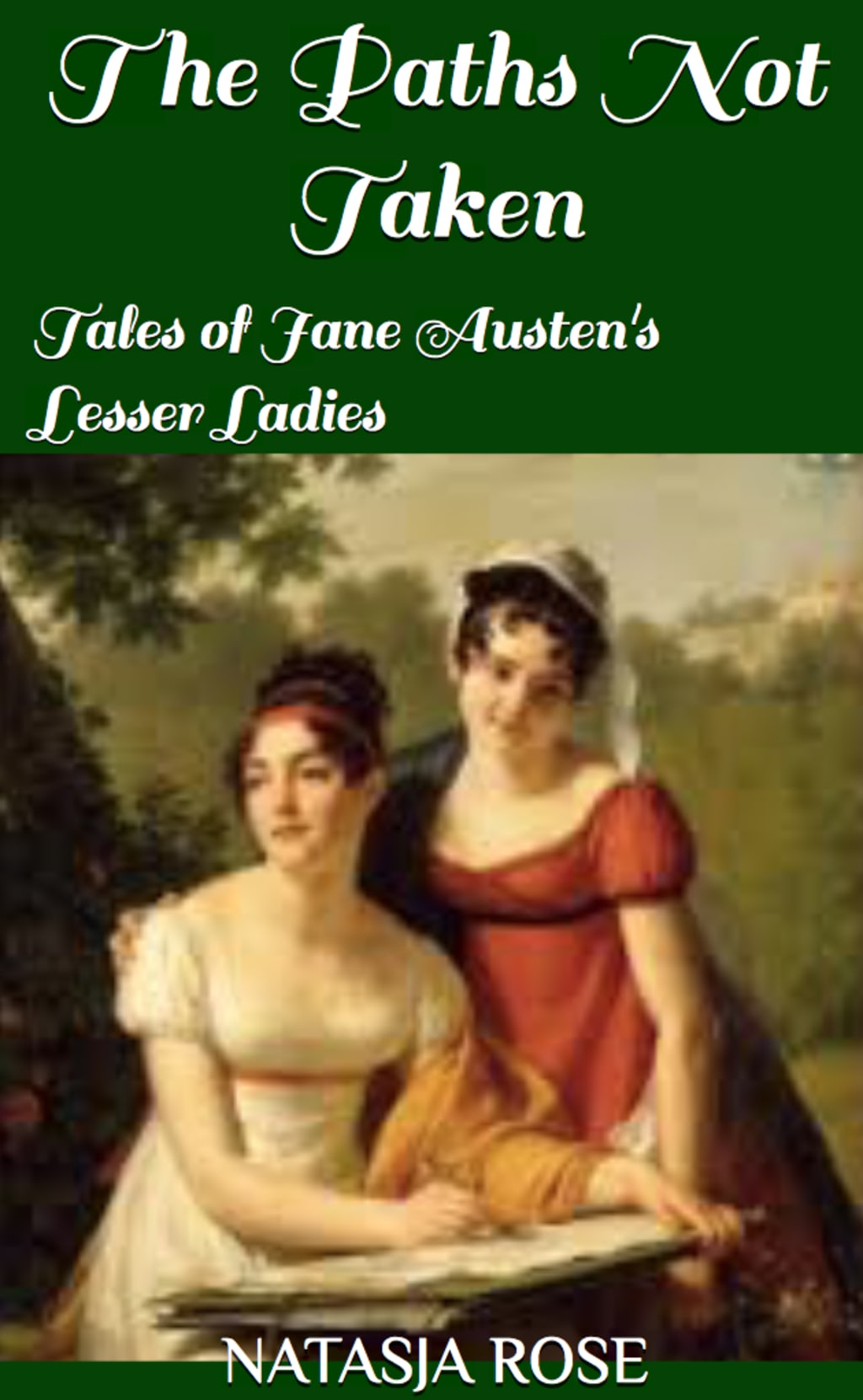
A character examination of Mary Musgrove, formerly Elliot. All of the attention-seeking has to come from somewhere, after all...
Mary’s earliest memories were of the sickroom.
She was sick often as a child, and amid the bouts of illness her strongest memories were of Mama sitting by her bedside, and the feel of being loved.
Anne was there, too, more often than not, before she was sent away to school in Bath. Elizabeth and Papa rarely troubled themselves to visit the sickroom. Even though they claimed it was due to fear of contagion, Mary was sure that it was because they cared little for anyone who was not themselves.
Mary was only eight when Mama became sick, too. Mary had only just mostly recovered from her own bout of illness, and did her best to keep Mama company, despite lingering headaches, and help the nursemaid when she allowed it, but it did no good. Mama died while Anne and Elizabeth were away at school, and only Anne seemed to truly care.
Anne used her pin-money to hire a maid and a carriage home when Elizabeth neglected to have the Elliot carriage collect her younger sister from the School for Young Ladies that Anne attended. Anne cared for Mary, who had fretted and grieved herself very ill indeed. Then Anne was sent back to Bath, and sixteen-year-old Elizabeth was happy to take on Mama's airs and prestige as the Lady of Kellynch Hall, but neglected such duties as looking after the sister barely half her age.
Anne did that, too, during holidays and when Papa finally deemed her old enough to leave school and be presented to society.
From the tender age of eight, until she married Charles Musgrove at the age of nineteen, Anne was the nearest thing to a mother - indeed, to any parent at all - that Mary Elliot knew.
Mary tried - she truly did - to gain some measure of worthiness and approbation in her family's eyes.
She parroted her father's Proud bearing, internalized his mannerisms and attitude toward their heritage and standing in the community. She tried to be of assistance to Elizabeth, who only ever had a dismissive or cutting remark for a sister eight years her junior. Mary occasionally visited the tenants, who treated her with the respect due her station, but they were forever asking about one thing or another, and how was Mary to address the many things that had been Mama's concern, and should now fall on Elizabeth?
Elizabeth did not like it when Mary raised those concerns, and even Anne was forced to speak carefully when she raised issues like the charity owed to their tenants and unpaid bills from the village merchants. At least Anne was listened to, while Mary was ignored. No-one cared to hear what Mary had to say, unless it required a doctor to be called.
School was a little better, for Mary had no sisters around to give precedence to, and there were only one or two girls in attendance who ranked higher than a Baronet's daughter. There was a good deal of society to be had in Somerton, if not so much as in Bath, where Anne and Elizabeth had been sent to school, and Mary was rarely bored.
Mary returned from school late in the year Nine, whereupon she was soon courted by Mr Charles Musgrove, the heir to Uppercross. He was a cheerful and good-natured fellow, and even if his family was untitled, they were kind, and highly placed in the area. Anne spoke well of Charles, too, and there was no higher qualification than Anne's regard.
Elizabeth did not like having to give way to a younger sister, nor the reminder that Mary was married at nineteen, while Elizabeth was much older, and had yet to receive a single offer of marriage. Indeed, Elizabeth was bereft of any suitors at all, whether she deemed them worthy of the Elliot name or not! She could not even claim to be saving herself for a match with the heir to Kellynch, for he had gone and married someone else, without ever meeting Elizabeth!
As such, Elizabeth avoided visiting Uppercross when she could, and rarely issued invitations to Kellynch, where she as hostess could take precedence over Mary. Anne visited when she could, particularly when Mary was confined during her pregnancies, but between Lady Russell's desire for her god-daughter's company and someone needing to take on the duties that Elizabeth found distasteful or beneath her, Anne rarely had so much free time - or access to the carriage - that she could visit for more than an hour or two.
The Musgroves were kind, but forever seemed too busy to spend much time with Mary, though they came willingly enough when Anne was visiting. Charles had been attentive at first, especially when Mary was pregnant with his heir, but he loved nothing so much as being outdoors, and Mary had never been so fond of the sun that gave her a headache, or the wind and rain on overcast days. Walter's birth had been difficult, and Mary was sure that she had never fully recovered from laboring a full two days with a child that even the Doctor admitted was the sturdiest babe he had ever seen.
Did other mothers struggle so, or take so long to recover? Even now, Mary found herself beset by headaches and bouts of melencholy, pains and cramps that never quite left, and it had taken nearly two full years to regain her figure!
Mary knew that she hadn't been Charles's first choice for a bride.
She tried to tell herself that it was only proper that he had offered for Anne first, but was it really necessary for Louisa and Henrietta to bring up the matter so often? They never visited but to inform her of some activity she was being left out of, flitting in and out of Uppercross Cottage like giggling hummingbirds.
Everyone preferred Anne, and it was too cruel that Mary was forced to assert her own rights as a married woman and the future Mistress of Uppercross, because no-one else seemed to remember it if she did not remind them!
Mary lay down again on the chaise lounge, trying to block out the clamour of her sons chafing under the care of their long-suffering nursery maid. Dwelling on such horrid matters never did her much good, but what else was there for her to do? The thoughts could never be forced away for long, and with little company and less entertainment, Mary had little else to occupy herself.
Perhaps when Charles returned, she would ask him to spend a little more time with the boys. Mary would have the care of any daughters, of course, but boys needed their father.
That had been Father's reasoning, and if it was good enough for the Elliots of Kellynch, then how could Charles complain?
It's interesting, looking back on Jane Austen's characters and speculating on the reasons behind their actions and behaviour.
It's possible that a lot of Mary's complains are all in her head, but it's equally possible that she could be suffering from trauma after her mother's death, or Post-Partum Depression, or any number of other things.
If you find yourself struggling, you aren't alone, and help is a lot more available now than it was in the Regency period.
If you enjoyed this story, then leave a heart, a comment, or an insight, and go check out my other stuff either here, or on Amazon and Medium.
Tips are appreciated, but not required.
About the Creator
Natasja Rose
I've been writing since I learned how, but those have been lost and will never see daylight (I hope).
I'm an Indie Author, with 30+ books published.
I live in Sydney, Australia






Comments (1)
Fabulous!